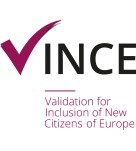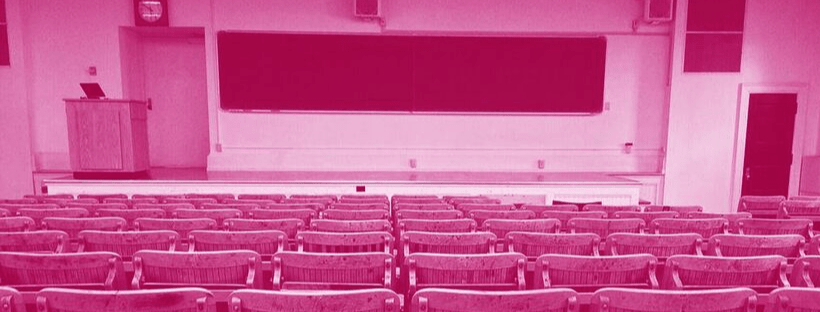Introduction
This is a template for higher education institutions, containing frequently asked questions (FAQs) from refugees and migrants about higher education institutions. Higher education professionals can use the template and answer the FAQs based on their institution’s specifications. We provide a template in English language with general answers. Furthermore, you can download examples how to fill out the template by five different European higher education institutions in the download-section below.
Feel free to adapt or elaborate the suggested answers based on your country’s specifications!
Guidelines for Higher Education staff to help migrants and refugees.
Download & adapt the guidelines for your purpose!
Share the guidelines on your institution’s website.
Welcome to this Institution – Frequently Asked Questions
This is a preview of the FAQ template “Welcome to this Institution”. Please mind that the answers are rather general and need to be adapted to the specific processes and regulations at your institution. In the downloads-section below you can find the English template as well as five examples of filled out guidelines of our partner institutions.
Internet links or notice boards with temporary jobs may be available; careers advice or jobs for graduates may be available in some institutions. Provide details of any specific support for migrants.
First of all, this will depend on whether the refugee is legally allowed to work or whether his/her right to reside in the country is limited to studying.
It will also depend on the methods of tuition the institution offers and the type of work the refugee wants to do. Some institutions may offer part-time courses (evening courses, weekend courses, etc.) giving students the possibility to work during the week. If the course is a traditional, full-time course, the refugee should be made aware of the course timetable during the week and of any free periods when working might be an option, such as during the evening or at week-ends.
It will also be necessary to advise the student of the total workload, i.e. not only the amount of time spent in classes but the amount of work the student is expected to do outside the classroom. In addition, the refugee will almost certainly be taking a course where the language of tuition is not his/her native language and should allow additional time to cope with this. Settling into a new environment may also mean that the refugee needs additional time. In other words, refugees may need more time for their studies than regular students.
It may also be useful for the refugee to contact the Student’s Union or talk to any refugee support groups at the institution for advice.
If the institution provides support, provide information about the type of help that might be available and/or contact details.
Some institutions award special grants and details of this as well as details of a contact person should be given.
This will vary from institution to institution, depending on the country, region/federal state and type of institution/course. This will obviously be one of the major concerns of refugees wishing to study and the information provided by the institution may be links to ministries, local government, regulations on student fees, grants or scholarships.
Please also refer to the FAQ about funding in the Welcome to Higher Education guidelines.
Institutions often need documents translated into the local language or English and may recommend local certified translators. Alternatively, embassies and consulates may also recommend translators.
This will depend on the courses offered by the institution but will be of particular interest to newly arrived migrants who may not speak the local language but may well speak English.
Language courses may be provided at the institution and details should be given.
The following courses may also be of interest for institutions and migrants:
- The Erasmus+ Online Linguistic Support (OLS) currently offers online language courses in Bulgarian, Czech, Danish, German, Greek, English, Spanish, French, Croatian, Italian, Hungarian, Dutch, Polish, Portuguese, Romanian, Slovak, Finnish and Swedish to higher education students, vocational education and training learners and young volunteers taking part in the Erasmus+ programme. The European Commission has decided to extend this service to the benefit of around 100,000 refugees over three years, on a voluntary basis and free of charge for them. The OLS can be used at any time from a computer, tablet or smartphone with an internet connection. The OLS language courses include a variety of self-paced modules covering different linguistic areas, as well as “Live Coaching” interactive activities (online MOOCs, tutoring sessions and forums). More information can be found
- Duolingo offers free language courses aimed at Arabic speaking refugees. The languages currently available are English, German, Swedish, Spanish and French, also available as an app.
- Memrise also offers free languages courses (app available) in more than 200 languages.
- Some regions may also offer refugees language courses as part of an integration scheme; the local council may be able to provide further information about this.
This will depend on the policy of the institution and the languages of the courses offered. Details should be provided.
If the institution provides bridging courses for prospective students before they actually start the admission procedure, provide details of the course and contact person here.
This will depend on the institution. Provide information/a link to the library of your institution.
Provide a link or copy the institution’s dates for admission applications and any other dates relevant for students.
Most institutions have a students’ union – information is also provided in the Welcome to Higher Education guidelines. Contact details at the institutional level should be provided.
If validation of prior learning is dealt with at the institution itself, the contact details of the person responsible for validation at the institution should be provided. In some countries, this is dealt with by a separate organisation or ministry. Details of the institution’s staff or the responsible organisation should be provided.
If special provisions are made for migrants, include the information as well as a contact person, e-mail address and telephone number.
Some European higher education institutions allow refugees to enrol as academic students in a course to first explore the university and their level of knowledge, waving any fees. For example, the Stiftung Universität Hildesheim have opened their courses to refugees. The University of Groningen offers the possibility to switch to a degree programme despite not having official documentation. The University of Bologna implements a programme enabling asylum seekers to enrol in single course units wavering the fee and without official recognition of the previous degree.
Other institutions which permit refugees to follow courses as guests and use the institution’s facilities include the University of Applied Sciences Emden/Leer;
The University of Duisburg-Essen; Leiden University’s graduate school of teaching (ICLON) allows Syrian teachers to take part in the Mobile Educator project, an 8-week programme designed by ICLON that aims to enable participants to use a range of ICT applications for mobile education; TU Dortmund University encourage refugees to start or continue their academic education as visiting students, waving the tuition fee until they may start or continue their studies as regular students. More examples can be found here.
This will depend on the system used in the country. If the system of admission to higher education is centralised, provide the link to the website of the organisation handling the admission procedure. If students have to apply to institutions individually, include links to the institution’s website with the relevant information as well as contact names, e-mail addresses and telephone numbers.
Most institutions will comply with the law governing their type of institution in their country, so a link to the relevant governmental website can be given. There may also be individual house rules on the institution’s website (link) or information on the internal platform/intranet which may need to be included in the answer.
Most institutions will have a map and directions to the institution on their websites, so a link should be sufficient.
Depending on the size of the institution, it may be appropriate to give a brief overview in English of the faculties/departments of the institution. A link to the institution’s website can provide more details.
Further Notes: Good Practice
Examples of European higher education institutions with initiatives to support refugees and migrants in higher education
The following higher education institutions all have pages on their websites dedicated to support refugees and migrants who are interested in studying at their institutions. These examples may prove useful for institutions who would like to set up their own initiatives and webpages to support applications from migrants:
- DE: The Ludwig-Maximilians-University Munich has a page on its website with information on studying for refugees and asylum-seekers, including FAQs.
- DE: Hochschule Magdeburg: This institution provides special services for refugees and migrants, including consultation, language courses and integration offers.
- DE: The Freie Universität Berlin has developed a “Welcome to Freie Universität Berlin” programme offering qualified prospective students who have had to leave their homeland an opportunity to attend selected courses and participate in selected additional offerings free of charge, thereby preparing to start a degree program.
- ES: The University of Barcelona has set up a refugee support programme that includes some measures to help those fleeing from Syria’s brutal civil war. The University estimates that the programme can take in one hundred refugees, help them to settle in Catalonia and enable them to continue their university studies in Barcelona.
Institutions with support initiatives for refugees and migrants mentioned in the FAQs are:
- DE: Stiftung Universität Hildesheim
- DE: University of Applied Sciences Emden/Leer
- DE: University of Duisburg/Essen
- DE: TU Technical University Dortmund
- IT: University of Bologna
- NL: University of Groningen
- NL: ICLON, Leiden
The European Commission supports the integration of migrants and refugees in higher education. The Commission funds projects and disseminates successful practices in this field. Language skills and recognition of qualifications are key issues for these groups. It has produced a list of inspiring practices where higher education institutions are helping refugees to get into higher education.
The list is the result of responses to an EU Survey launched by the European Commission on 24 September 2015 among universities and student organisations. It has been further completed following a workshop organised on 6 October 2015 with 25 representatives of Erasmus+ National Agencies, universities and student organisations. The aim is not to be exhaustive, but to share some practices taking place in different parts of the EU. The list can be found here.
“MORE” is an initiative by uniko, the voice of Austrian universities. Courses are offered to provide refugees a space for reflection, where they can find out whether higher education is an option for their future. It offers orientation in academic and artistic study fields and language trainings. MORE courses are held at every university town in Austria. The 21 universities in Graz, Innsbruck, Klagenfurt, Leoben, Linz, Salzburg and Vienna offer a certain amount of courses to MORE students, some of which are especially tailored for refugees, some are part of a degree program.
Further information can also be found in our Welcome to Higher Education guidelines.
Download
Download the “Welcome to this Institution”-Template and adapt it to your needs or check out one of our filled out guidelines of partner institutions:


